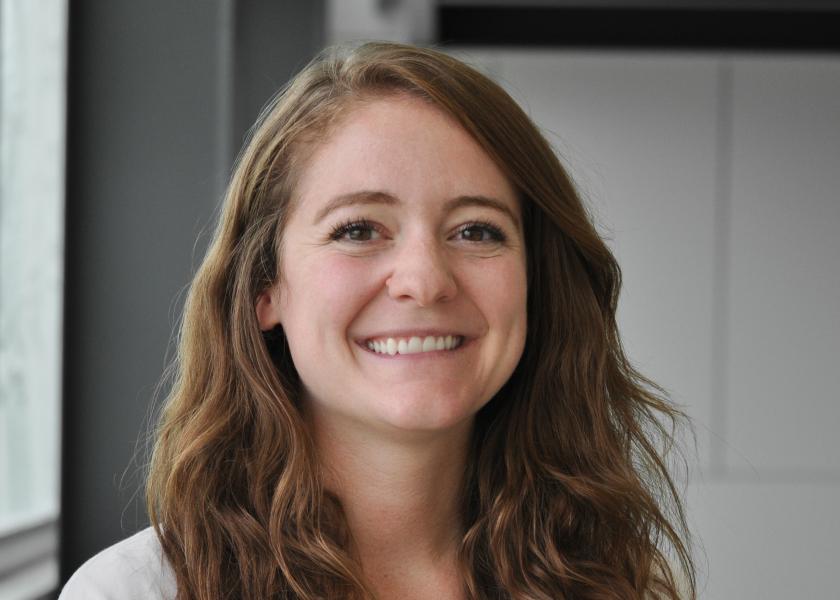Ruston Explores Ways to Improve Biosecurity on the Farm

Meet Chelsea Ruston, our latest addition to Farm Journal's PORK's Up & Coming Leaders feature. We are showcasing some of the fresh, new voices of the pork industry who combine innovative thought and work ethic with scientific savvy and a passion to make a difference.
Age: 30
Education: Bachelor’s degree, The Pennsylvania State University; DVM, Iowa State University; pursuing a master’s degree in Veterinary Preventive Medicine through ISU’s VDPAM department and post-doctoral fellowship program with the Swine Medicine Education Center
Hometown: Altoona, Pennsylvania
Q. How did you become interested in pursuing a career in the swine industry?
A. I credit my interest in swine medicine largely to Iowa State University and the various internships it offers through the Swine Veterinary Internship Program (SVIP) and the Swine Medicine Education Center (SMEC). The mentors I had through these programs greatly influenced my decision to pursue a career in the swine industry.
Q. Describe any internship experiences you’ve had.
A. During my first summer in veterinary school, I really wanted to gain experience in swine medicine so I interned with SMEC and continued to stay on with them as a work study student. I jumped at any swine research opportunities that needed assistance during the school year. I also interned with Smithfield in North Carolina through SVIP.
Q. Describe your undergraduate research experiences.
A. In undergrad, I knew I wanted to go to veterinary school, but was focused on research and small animal medicine. I worked for a small animal veterinarian 20 minutes from my hometown, and helped out with research at Penn State with mice. Coming to Iowa State for veterinary school really opened the door for me to gain experience in swine medicine.
Q. How did you gain swine experience?
A. I grew up in a decently sized suburb in Pennsylvania, and honestly did not get a lot of exposure to agriculture growing up. I gained some exposure at Penn State, but most of my exposure to agriculture and swine medicine was through Iowa State coursework and research opportunities and my various internships.
Q. Tell us about your current research.
A. My research focuses on biosecurity. I completed one study looking at the efficacy of ultraviolet-C light (UVC) against Senecavirus A on different surface types commonly brought onto swine farms. UVC is an application that is being used more and more frequently in the swine industry. Understanding how to use it appropriately is important when decontaminating supplies that are being brought into farms to try and prevent a disease outbreak. My other focus has been evaluating a staged loading procedure during market loadouts to prevent contamination from livestock trailers to the barn. There is a large variation in how systems handle their livestock trailers after hauling market swine, and even when livestock trailers are washed, disinfected and dried, they may not be done so correctly every single time. Staged loading can provide an additional layer or biosecurity to help prevent pathogen spread from trailer to barns. It also demonstrated the potential for a large amount of contamination spread from the livestock trailer to the loadout chute in barns.
Q. What is your generation’s greatest challenge?
A. I think as veterinary medicine continues to get more specialized, it is important that swine medicine remains a part of the core curriculum in veterinary schools. There has been a dramatic decrease in the exposure to swine medicine that students get at many veterinary schools around the U.S., so I think a challenge will be making sure we continue to recruit veterinary students interested in swine medicine.
Read more from Farm Journal's PORK:
Can Virus Transfer Be Reduced by a Staged Loading Procedure?







